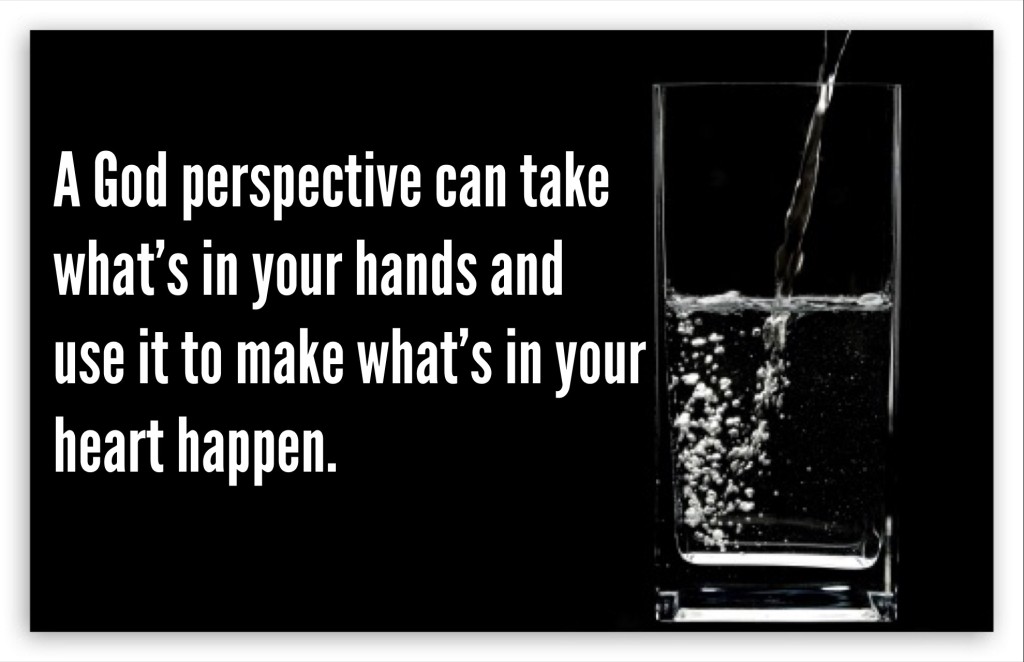Is the glass half full? Or is the glass half empty? I’m pretty sure we’ve all heard this adage. Typically we’ve connoted whatever answer a person gives to this question as an indicator to whether they are an optimistic or pessimistic personality. Of course seeing the glass as half full is a good perspective to have as opposed to seeing the glass half empty. Obviously most of us desire to have good perspectives and positive outlooks on our life, but I’d like to submit to you that a “good” perspective isn’t necessarily a “God perspective”.
perspective: the capacity to see things in their true meaning or importance
Perspectives are so interesting, and by interesting I mean fickle. You see, as humans, our perspectives are often shaped by our experiences. Think about it, the “glass half…” question really proves this:
- Glass is half empty: Is your perspective driven by what you had but lost, or maybe you see the glass as half empty because of something you expected but never received?
- Glass is half full: is your perspective driven by what you might have, do you define yourself based on future expectations?
See if we’re not careful, our perspectives could end up being driven by what we’ve experienced, but not necessarily by what is true. But a God perspective works differently, a God perspective doesn’t look at what you might be, it doesn’t look at what you might have lost, but it looks directly at what you have, now!
The origin of the very word perspective comes from a Latin word, perspicere, which means to “look through or beyond”. Our human perspective can only “look at”, “look at all I’ve done wrong” “look at all I’ve messed up” but a God perspective actually looks through or beyond our human perspectives.
Moses answered, “What if they do not believe me or listen to me and say, ‘The Lord did not appear to you’?” Then the Lord said to him, “What is that in your hand?” Exodus 4:1-2 (NIV)
This portion of scripture finds Moses being called into his God-given purpose, but his perspective is still being defined by his life experience. Moses always had a desire to free his people in his heart, but he found himself living in exile because of his past mistakes. Moses was living a life that was insecure, broken and defeated.
Moses’ response to God was “look at those people, what if they don’t believe me, what if they don’t listen to me”. He could only look at the problem before him. God replies to Moses and asks him “What is in you hand?”
See because of his regret, shame and disappointment, Moses was unable to use what was in his hands, and essentially, God is telling him and telling us, “I can use what it’s in your hands to make what’s in your heart happen!”
It’s so easy to feel inadequate and overwhelmed when we look at everyone else’s talent’s and abilities, but God has given you talents and abilities of your own that match the desire that is in your heart!
A God perspective looks through the impossibility and asks “What can I do with what I have right now?” A God perspective can take what’s in your hands and have you living beyond your natural ability and capacity. A God perspective can put you in places you’ve never dreamed of and all of this starts with you using what is in your hands!
So forget the glass, what is in your hands?
Live Extraordinarily,Jared


